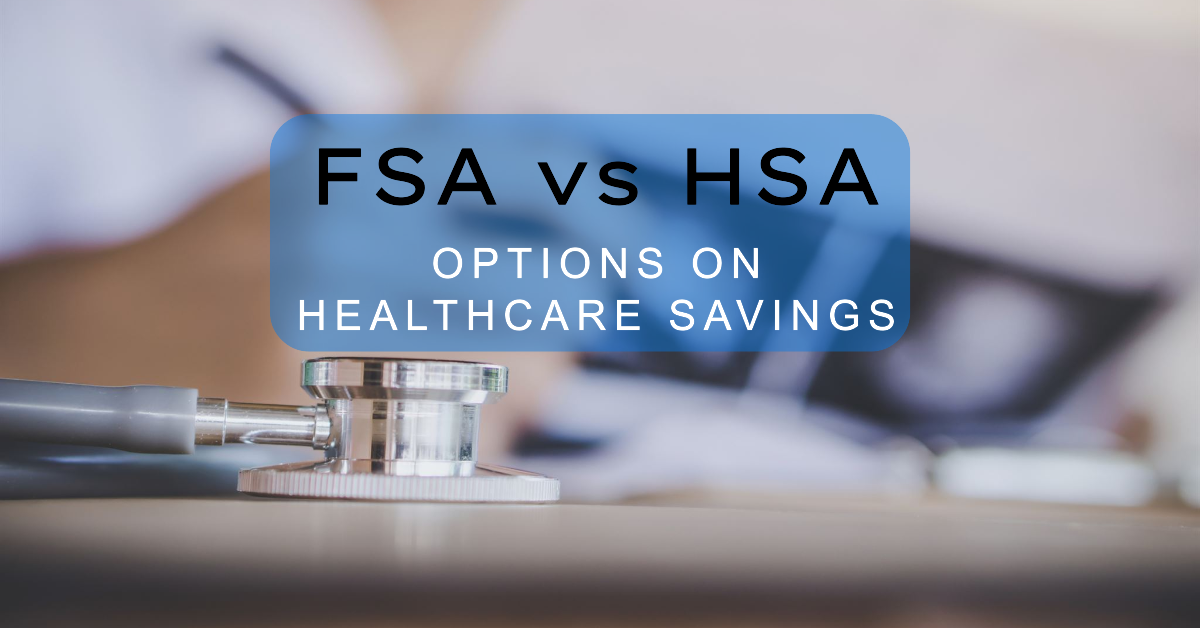HCFSA vs HSA: Options on Healthcare Savings
Healthcare costs can be a significant financial burden for many individuals and families. Fortunately, options are available to help manage these expenses, such as Health Care Flexible Spending Accounts (HCFSA, or FSA) and Health Savings Accounts (HSA). Both offer tax advantages and can be used to pay for qualified medical expenses, but they differ in eligibility requirements, contribution limits, and other features. This article will comprehensively compare HC FSA and HSA to help you determine which option is best suited for your needs.
What is an HCFSA?
An HCFSA (Healthcare Flexible Spending Account) is an employer-sponsored employee benefit that allows you to set aside money pre-taxed from your paycheck to pay for qualified medical expenses. These expenses can include doctor’s visits, prescription drugs, eyeglasses, and other eligible healthcare costs. The money in your HC FSA account is typically available for use throughout the plan year, and any unused funds may be forfeited at the end of the year, depending on your employer’s plan.
Knowledge is Confidence!
What is an HSA?
An HSA is a tax-advantaged savings account that can be used to pay for qualified medical expenses. Unlike HCFSA, HSA is not tied to your employer and can be carried over from year to year. To be eligible for an HSA, you must be enrolled in a high deductible health plan (HDHP). Should Every Federal Employee Have a High Deductible Health Plan? An HDHP is a health insurance plan with a higher deductible than traditional health benefit plans, but it typically has lower monthly premiums.
HSA vs HCFSA: Comparison Chart
| Feature | HCFSA | HSA |
|---|---|---|
| Eligibility | Offered by employers | Must be enrolled in a high-deductible health plan (HDHP) |
| Contribution Limits | HCFSA Limit 2024 is $3,200. Employers may contribute up to $3,200 | In 2024, Single Coverage is $4,150. Family Coverage is $8,300. Over age 55 allows an additional $1,000 contribution. |
| Rollover | Limited or no rollover, depending on employer's plan | Unused funds roll over from year to year |
| Investment Options | Typically not available | Available for HSA holders to invest their funds in various options, such as stocks, bonds, and mutual funds |
| Ownership | Owned by the employer | Owned by the individual |
| Termination of Employment | Funds may be forfeited if employment ends, depending on the employer's plan | Remains with the individual, regardless of employment status |
| Tax Benefits | Contributions are pre-tax, reducing taxable income | Contributions are pre-tax (or tax-deductible if made outside of payroll), earnings grow tax-free, and withdrawals for qualified medical expenses are tax-free |
| Use of Funds | Limited to qualified medical expenses | Can be used for qualified medical expenses at any time, even in retirement. After age 65, funds can be used for non-qualified expenses without penalty, but they will be subject to income tax. |
| Additional Features | May offer a debit card for convenient payment of medical expenses | May offer a debit card, online bill pay, and investment options |
| Contribution Deadline | Varies by plan, but usually by December 31 | Able to contribute to an HSA throughout the year, up to the following year's tax filing deadline (usually April 15) |
Which Option Is Right for You?
The best option for you depends on your individual circumstances and preferences. Here are some factors to consider when making your decision:
- Eligibility: If you are not enrolled in an HDHP, you will not be eligible for an HSA.
- Contribution Limits: If you anticipate high medical expenses, an HSA may be more beneficial due to its higher limits.
- Rollover: If you want the flexibility to carry over unused funds from year to year, an HSA is the better option.
- Investment Options: If you are interested in investing your healthcare savings, an HSA may offer more investment options than an HCFSA.
- Tax Benefits: Both HCFSA and HSA offer tax benefits, but the specifics may vary depending on your individual tax situation.
It’s important to consult with a federal employee financial advisor or tax professional to determine which option is best for your specific needs.
Frequently Asked Questions on HSA and HCFSA
Can I have both an HCFSA and an HSA?
In general, you cannot have both a general-purpose HCFSA and an HSA. However, you may be able to have a limited-purpose HCFSA (LPFSA) alongside an HSA. An LPFSA can only be used for specific expenses, such as dental or vision health care expenses. Dependent care FSA for children expenses may be allowed as well.
Can I change my HCFSA or HSA election during the year?
Typically, you can only change your election during open enrollment or upon a qualifying life event, such as marriage, birth, or adoption when you change your health plan.
What happens to my HCFSA or HSA if I change jobs?
Your HC FSA is tied to your employer, so you will likely forfeit any unused funds if you leave your job. However, your HSA is portable and will remain with you even if you change employers.
Can I use my HCFSA or HSA to pay for over-the-counter medications?
Many over-the-counter medications are eligible for reimbursement with an HCFSA or HSA. Additional items, such as menstrual care or eye care products, are also allowed.
Would Medicare enrollment cause issues?
If you are still working past 65, you can continue to contribute to your HC FSA. However, you cannot contribute to the HSA.
HSA or FSA?
Both HCFSA and HSA offer valuable tax advantages and can help you manage healthcare expenses. The best option for you depends on your individual circumstances and preferences. By carefully considering your eligibility, general health, contribution amounts, rollover options, investment preferences, and tax benefits, you can make an informed decision that will help you save money and plan for future healthcare costs.
Reach Out to Us!
If you have additional federal benefit questions, contact our team of CERTIFIED FINANCIAL PLANNER™ (CFP®), Chartered Federal Employee Benefits Consultants (ChFEBC℠), and AIF® professionals. At PlanWell, we are federal employee financial advisors with a focus on retirement planning. Learn more about our process designed for the career fed.
Preparing for federal retirement? Check out our scheduled federal retirement workshops. Sign up for our no-cost federal retirement webinars. Make sure to plan ahead and reserve your seat for our FERS webinar, held every three weeks. Want to have PlanWell host a federal retirement seminar for your agency? Reach out, and we’ll collaborate with HR to arrange an on-site FERS seminar.
Want to fast-track your federal retirement plan? Skip the FERS webinar and start a one-on-one conversation with a ChFEBC today. You can schedule a one-on-one meeting.










